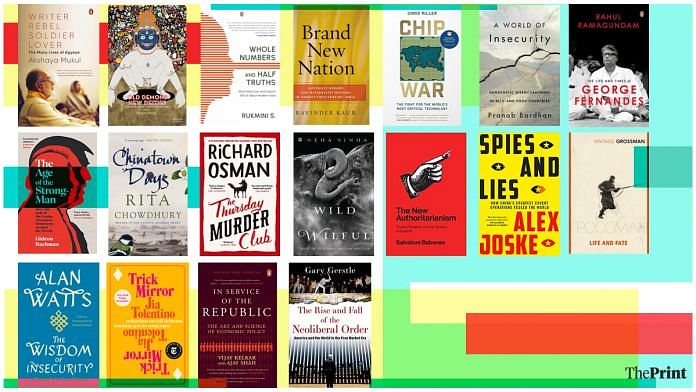ThePrint team asked its Opinion columnists about the books they loved reading this year. Here’s what they said about their favourite titles.
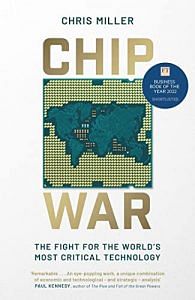 Chip War: The Fight for the World’s Most Critical Technology by Chris Miller
Chip War: The Fight for the World’s Most Critical Technology by Chris Miller
This book chronicles the history of Taiwanese-American businessman Morris Chang and his Taiwan Semiconductor Manufacturing Company, probably the world’s most powerful ‘unknowns’. The company and Chang are the reason why the world’s superpowers are in a collision and may trigger Cold War II or World War III: Praveen Chakravarty, political economist and Congress party member.
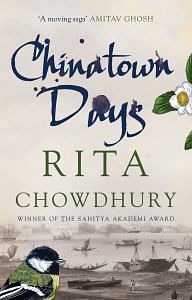 Chinatown Days by Rita Chowdhury
Chinatown Days by Rita Chowdhury
This book made my heart thump out loud. Despite being non-fiction, it has the imagination and flow of a novel. It made me understand so much about the evolution of China, its people, and the curse of war. With details about the Chinese slave trade that led to the setup of Chinese settlements in Assam and Bengal, the narrative gnawed at my soul as I realised how cruel war can be, how it divides peoples, breaks hearts, and fractures identities: Ayesha Siddiqa, senior fellow at the Department of War Studies at King’s College, London.
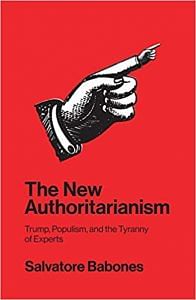 The New Authoritarianism: Trump, Populism, and the Tyranny of Experts by Salvatore Babones
The New Authoritarianism: Trump, Populism, and the Tyranny of Experts by Salvatore Babones
The book is a forceful pamphlet on the utility of what is disparagingly described as ‘populism’. Babones, a defender of plebiscitary democracy, is aggrieved by the tyranny of the expert-laden institutions which, he argues, suppress the will of the people in the name of tempering it. This grievance animates his attitude toward the Western liberals who champion such institutions. This cleverly argued and bracing book is as good a defence as conservative populists can expect: Kapil Komireddi, author and political commentator.
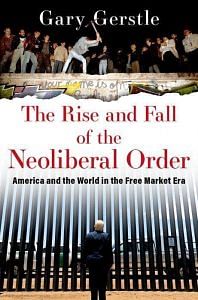 The Rise and Fall of the Neoliberal Order: America and the World in the Free Market Era by Gary Gerstle
The Rise and Fall of the Neoliberal Order: America and the World in the Free Market Era by Gary Gerstle
A clear and incisive account of the American political order from Ronald Reagen to Donald Trump, the book shows what has united the Democrats and Republicans despite their ‘polarised’ politics. Big economic ideas, political hubris, and tumultuous change feature in this fast-paced and well-written account. Unmissable for its sharp insights into American politics and global supremacy, Gerstle’s work is no comfort blanket: Shruti Kapila, history professor, Cambridge University.
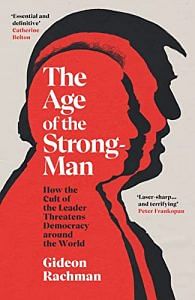
The Age of the Strong Man by Gideon Rachman
The list of populist leaders with authoritarian streaks is long: Vladimir Putin, Xi Jinping, Donald Trump, Narendra Modi, Viktor Orban, Rodrigo Duterte, Jair Bolsonaro, Benjamin Netanyahu, Abiy Ahmed are prime examples. What’s mindblowing about the book is the author’s ability to illustrate and highlight the common strain of these leaders who leverage ‘othering’ to consolidate power by strangulating democracy: Lt Gen (Dr) Prakash Menon (retd) of Takshashila Institution.
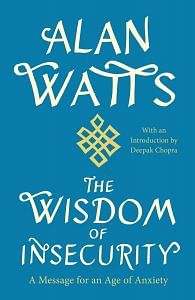
The Wisdom Of Insecurity by Alan Watts
This powerful book, partly based on Lao-Tzu’s philosophy, explains how emptiness is the most powerful and creative state of being. You understand that individual insecurity stems from trying to be secure. Moreover, Watts tells you that we can’t experience pleasure without being sensitive to pain: Sheela Bhatt, senior journalist.
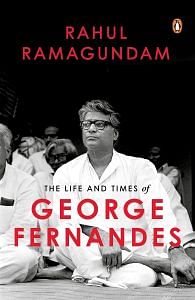 The Life and Times of George Fernandes by Rahul Ramagundam
The Life and Times of George Fernandes by Rahul Ramagundam
The book is the first genuine life sketch of George Fernandes. The author has attempted to get into the mind of the man to make sense of his political and personal calls, the about-turn to join the National Democratic Alliance government in the mid-’90s, and the very painful end to his political career with graphic detail. It is a history of the socialist movement and its myriad variations that might have run their course: Anand Kochukudy, Kerala-based journalist and columnist.
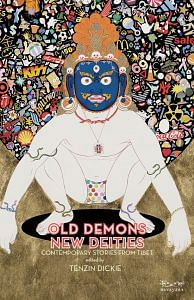
Old Demons, New Deities: Contemporary Short Stories from Tibet, edited by Tenzin Dickie
The Chinese conquest of Tibet is something all of us are familiar with—but what did it actually mean in human terms? What does the loss of a homeland, centuries of history, do to a people? I found myself shocked into silence by the raw thematic power of the tales in this book and the many threads of Tibetan culture that they explore. For those who wish to understand Tibet beyond the merely geopolitical, I cannot recommend this enough: Anirudh Kanisetti, public historian
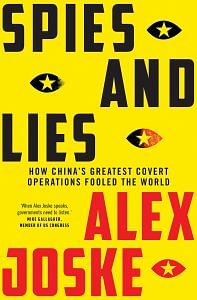 Spies and Lies by Alex Joske
Spies and Lies by Alex Joske
The book gives great insight into the workings of Chinese intelligence operations and demystifies its almost slow-moving and subtle nature. Debunking the myth of the ‘Thousand Grains of Sand’ approach to intelligence gathering, Alex Joske reveals a more structured approach to such operations: Aadil Brar, columnist and journalist.
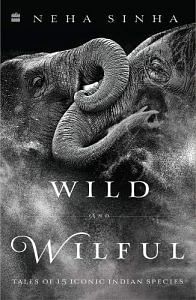
Wild and Wilful by Neha Sinha
This book is a call to abandon our anthropocentric arrogance and share the Earth and its resources with all the wild and wilful creatures. By addressing them as ‘citizens’, Neha Sinha reminds us that just as ‘trees have a standing’, every living creature we share our space and habitat with has equal entitlements: We are not patrons, and they are not our clients: Sanjeev Chopra, former IAS officer.
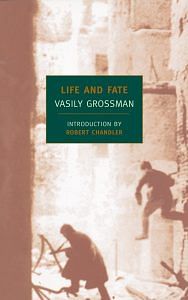 Life and Fate by Vasily Grossman
Life and Fate by Vasily Grossman
The book offers you an extraordinary description of life under suspicion, discrimination, and political prejudices. Vasily Grossman brings the environment of a Nazi gas chamber alive — almost as if he had been present in one. And this book finally convinced me that the only hate in life should be hate itself: Manvendra Singh, Congress leader.
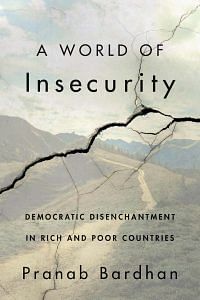
A World of Insecurity: Democratic Disenchantment in Rich and Poor Countries by Pranab Bardhan
Why are working classes, whether in the Global North or South, voting for Right-wing parties? In this important book, Bardhan argues that the Right has understood things about the dispossessed that the Left hasn’t — that the fear of cultural loss is as heavy as the fear of material loss. The book offers valuable insights for those who aspire to build democratic welfare States: Subhasish Ray, professor, O.P. Jindal Global University.
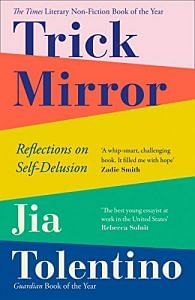
Trick Mirror: Reflections on Self-Delusion by Jia Tolentino
Tolentino offers a scathing cultural criticism of the digital age, not from the usual dystopian sense, but a more nuanced position. She gets deeper into how we unknowingly commodify the self and identity in the attention economy by creating a performance on the internet. The book helped me understand my shortcomings and anxieties as an internet user: Anurag Minus Verma, multimedia artist.
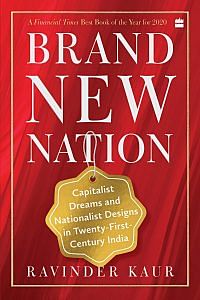
Brand New Nation by Ravinder Kaur
Ravinder Kaur talks about the rise of India in the 21st century through advertising and campaigning that altered public opinion and perception, both within the country and outside of it. The book tells us how capitalism and Hindu nationalism have been feeding into each other. I found the book mindblowing as it decodes the logic behind some incidents that I saw unfolding right before me but couldn’t understand earlier: Arvind Kumar, Associate Fellow of Higher Education Academy (AFHEA), United Kingdom.
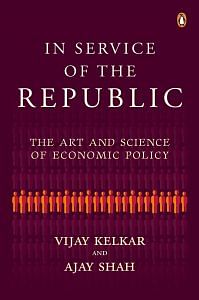 In Service of the Republic: The Art and Science of Economic Policy by Vijay Kelkar and Ajay Shah
In Service of the Republic: The Art and Science of Economic Policy by Vijay Kelkar and Ajay Shah
I read this book’s first edition when it came out in 2019 and thought it was great. But the second edition that came out this year was more delicious and reads better with a cleaner flow of logic. The proposition that India had a great phase of growth between 1991 and 2011 and got stuck thereafter is clearer in this edition. The clamour for diagnosis and solutions is greater, with new and important chapters on technology policy, climate change, and the Covid vaccine: Renuka Sane, associate professor at NIPFP.
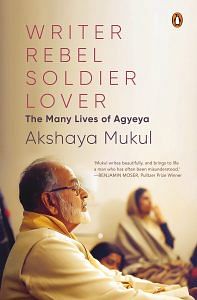
Writer, Rebel, Soldier, Lover: The Many Lives of Agayeya by Akshay Mukul
Akshay Mukul has written a nuanced and full-length account of the colourful and contradictory yet amusing life of Hindi writer Agayeya. I grew up reading Hindi literature, and this wonderfully written biography of one of my favourite writers is mesmerising. Reading this 700-page-thick book is akin to walking into a museum of people and digging into their private lives: Balraj Sahni, Premchand, Dharmveer Bharti are some of the biggest names: Khinvraj Jangid of O.P. Jindal Global University.
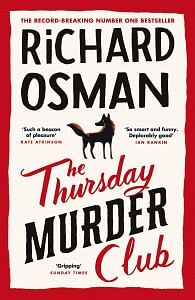 The Thursday Murder Club by Richard Osman
The Thursday Murder Club by Richard Osman
I had not read fiction for a long time, and this book was a very well-written and crafted murder mystery. Richard Osman is a really funny guy on the BBC and an equally good writer as well: Kushan Mitra, Delhi-based automotive journalist.
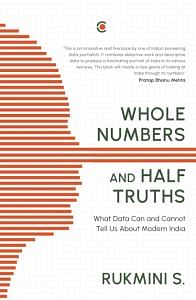 Whole Numbers and Half Truths by Rukmini S.
Whole Numbers and Half Truths by Rukmini S.
For policymakers, governments, opposition, and international organisations, data — on various aspects of the economy, politics, and society — is an essential tool. In this book, Rukmini.S. highlights the impact of the government on the integrity and relevance of data: Siraj Hussian, former Union Agriculture Secretary.


